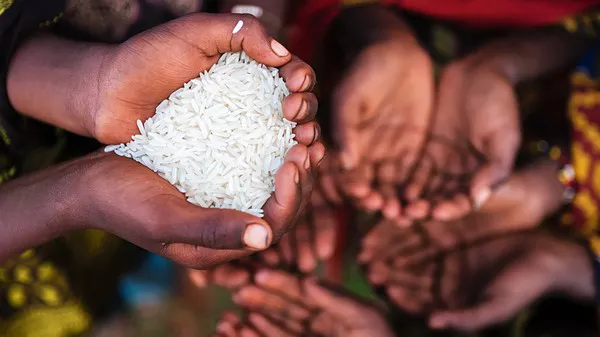In a joint report released on Thursday by United Nations agencies and the African Union Commission, it has been revealed that an alarming three-quarters of Africans cannot afford a nutritious diet, with one-fifth of the population facing undernourishment. This distressing situation has been attributed to an “unprecedented food crisis” exacerbated by various factors, including global grain supply disruptions due to Russia’s conflict in Ukraine, regional conflicts, climate change, and the lingering impacts of the Covid-19 pandemic.
According to the report, Africa’s 1.4 billion people are grappling with heightened levels of hunger and malnutrition, and the repercussions are expected to worsen in the near future, putting millions at risk. Despite being a region rich in natural resources, Africa is failing to meet its commitment to eradicate hunger and all forms of malnutrition by 2025. The continent’s rapidly growing population, set to double by 2050, is facing increasing poverty, with some even welcoming military coups promising a better life.
The Food and Agriculture Organization, the U.N. Economic Commission for Africa, the World Food Program, and the African Union Commission jointly issued the report, sounding the alarm that a majority of Africa’s population, exceeding one billion people or around 78%, cannot afford a healthy diet. This contrasts starkly with the global average of 42%, emphasizing the severity of the crisis.
The report highlights that armed violence in West and Central Africa has displaced millions, while climate change and extreme weather events in East Africa pose serious threats to farmers. Rising food prices have left many families struggling to put food on the table as their incomes lag behind.
In 2022, an alarming 342 million Africans were classified as “severely food-insecure,” constituting 38% of the global total of 735 million hungry people. Children under the age of 5 are among the most affected, with 30% experiencing stunted growth due to malnutrition.
Abebe Haile-Gabriel, the FAO regional representative for Africa, emphasized the urgency of addressing the deteriorating food security situation. The report underscores that the Covid-19 pandemic has further exacerbated the continent’s challenges, with an additional 57 million Africans becoming undernourished since its onset, reaching a total of nearly 282 million in the previous year.
The situation is dire in Nigeria, Africa’s largest economy and a leading oil producer, where nearly 93% of the population, exceeding 210 million people, cannot afford a healthy diet. Such staggering statistics raise questions about governance and resource utilization, especially when juxtaposed with budget allocations for non-essential expenditures, such as presidential cars and house renovations.
The UN agencies hope that these findings will serve as a catalyst for transformative actions in agrifood systems and other essential sectors to improve production, nutrition, the environment, and the overall quality of life for all Africans. The call to address this crisis is urgent, emphasizing the collective responsibility to achieve a world without hunger and malnutrition by 2030.

